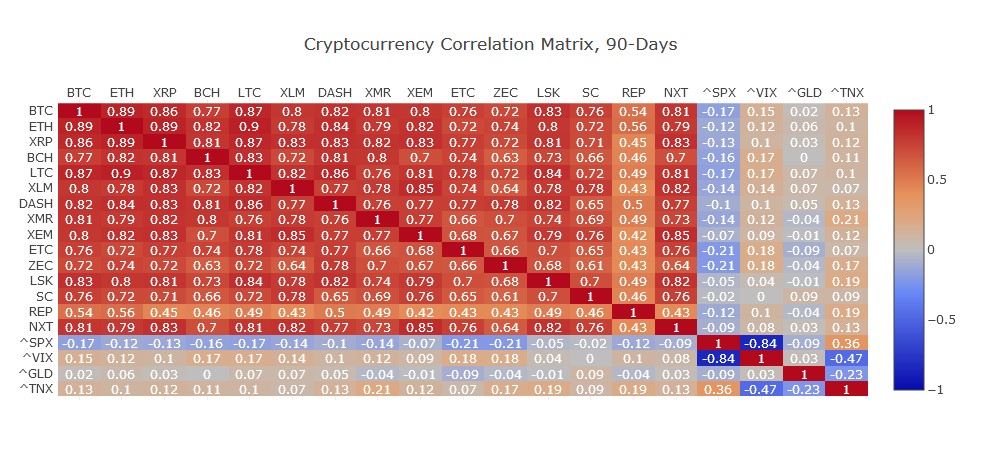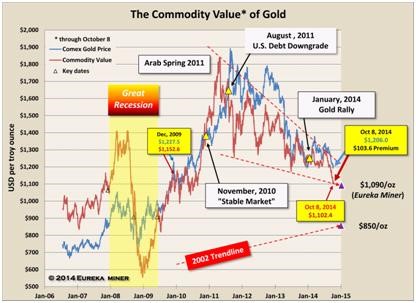After an epic run in 2017, much of the hoopla surrounding cryptocurrencies seems to have faded, with the majority of price movements now being driven by news and events rather than pure speculation.
Long-time investors in the space will no doubt begin to ponder whether it makes sense to hold crypto now as a safe-haven asset, and also whether the digital currency is capable of living up to that billing in the event of a major financial meltdown.
Which is not exactly an idle question either, given the current backdrop of constant trade war threats, political tensions in the Eurozone, market crises in the emerging markets of Latin America and monetary tightening by central banks across the globe.
Would Bitcoin and other cryptos see large capital inflows due to their reputation as independent assets, or would investors view them as no different from more traditional asset classes?
Crypto the New Safe Haven?
Unlike safe assets like gold, silver and Treasury bonds, cryptocurrencies have never been subjected to this litmus test. The last major financial crisis spanned 2008-2009 when crypto pioneer, Bitcoin, had not even made its debut let alone become available to the masses.
The latter part of 2017 was characterized by a “risk on” period and a strong uptrend in stocks that was followed by an extreme crypto rally. Coincidentally, gold--considered the pre-eminent safe haven asset--also finished the year with double-digit gains. So that's pretty inconclusive since the real value of a safe haven is seen during market downturns.
How cryptos would actually behave during a market meltdown largely depends on how investors view them.
Currently, cryptos are viewed as high-risk, high-return assets by the vast majority of investors. That's a big reason behind their volatility as well. Sadly, that's hardly the hallmark of a safe haven.
So cryptos fail the first test--at least in theory.
Low Correlation with Stocks
A good safe haven should also, theoretically, be a good hedge for stocks--i.e. it should be able to at least preserve its value when stocks are losing theirs.
Analytics firm Sifr has compiled a correlation matrix for different cryptocurrencies--stocks, gold, VIX etc. According to the chart, Bitcoin's correlation with S&P 500 is a mere -0.17. That's a weak negative relationship correlation since a reading of -0.1 to -0.3 indicates a weak negative relationship while -0.5 to -1.0 indicates a strong negative relationship. The 365-day reading is 0.57--a strong positive correlation (in large part due to the 2017 rally).
Unfortunately, the matrix only provides a lookback period of 12 months, which is not nearly enough to make anything concrete.

(Click to enlarge)
Source: Sifr Data LLC Related: These Are The Top Gold Producing Countries In The World
Interestingly, gold has an even weaker 90-day correlation of -0.09 with stocks, which buttresses the view that gold is not a good short-term hedge for stocks.
Safe Haven Rally
So far, the evidence we have examined seems to suggest that cryptocurrencies might not be a very good safe haven--in theory.
But what if panicking investors see everything around them crumbling and consider them a viable alternative to stocks during a market downturn?
Well, in that scenario, cryptos would probably follow gold's 2008-2009 trajectory. Gold prices fell sharply, along with those of other assets, in October 2008 at the height of the crisis as investors sold their holdings to shore up losses in other markets. Congress then came to the rescue in October and approved the Troubled Asset Relief Program in—a $700-billion bailout plan--and gold started rebounding by the end of 2008. The subsequent huge gold rally that took prices from $900-$1,000 to nearly $1800 was largely as a result of QE and a period of big reflation.

(Click to enlarge)
Source: Kitco
Since cryptos are non-interest yielding assets just like gold, it's not unthinkable that Fed policy would also impact their movement in a meaningful way.
By Alex Kimani for Safehaven.com
More Top Reads From Safehaven.com:
















